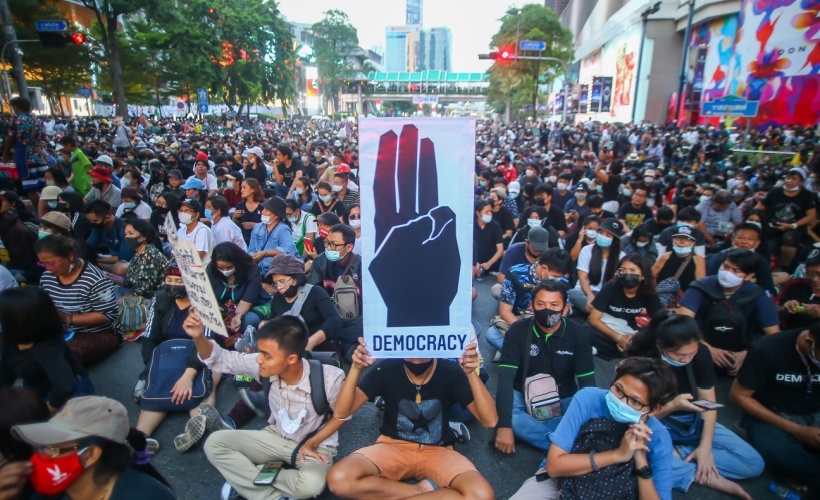This presentation aims to examine Japan’s Free and Open Indo-Pacific (FOIP) Vision, to interrogate whether it is a platform of good governance practice and international law principles expressing a position on global common values, or as a geopolitical reaction to China’s Belt and Road Initiative (BRI). It also assesses FOIP providing umbrella coverage for any Japanese international cooperative project to be regarded as a principled collective development rather than pragmatic geopolitical counter to a rising China, and examines the legal and values-based legitimacy of Japan’s own claims. Other issues addressed are whether Japanese approaches will likely realise tangible FOIP Vision benefits and how Free and Open is Japan’s Vision, as well as considering in broader terms if the FOIP Vision holds the potential for an ecumenical coalescence of a norms and values based global community.
This presentation will be formed of four main sections:
- The development and emergence of Japan’s Free and Open Indo-Pacific Vision
- The Geopolitical Aspects of the FOIP Vision
- Visions of Law and Ocean Governance
- Applications of FOIP: Prime Partnerships
These provide context for development of Japan’s policies prior to and within the FOIP Vision, how the Vision emerged and developed, the unusual degree of close coordination of four ministries primarily managing the Vision’s application to policy and external relations, and the close connections between maritime and legal issues, and the role of Partnerships within Japan’s FOIP. All of these aspects offer great potential but also pose potential risks for Japan and its stated “many roads to FOIP” open, communal approach. The Vision aim appears to consolidate extant regional and global institutional architecture, and to reinforce the rules-based international order, often actualised by low-key bilateral means rather than through grand strategic architecture, as policy construction without monolithic symbols.
Speaker:
Garren Mulloy is a Professor in the Faculty of International Relations and Graduate School of Asian Area Studies, Daito Bunka University, Saitama, Japan, and also teaches intensive courses on peace operations for the University of Tsukuba Business School, having previously taught at Keio University. His research has focused primarily upon Japanese security, having completed a PhD on Japan Self-Defense Forces’ overseas operations at Newcastle University (2011), and he has written on contemporary defence, security, diplomacy and related issues, as well as historical studies of Japan, the UK, and war memorialisation. His book, ‘Defenders of Japan: The Post-Imperial Armed Forces, 1946-2016-A History’ (London: Hurst & Co., 2021), combined historical and IR approaches, and co-edited with Catherine Jones (St. Andrews) ‘East Asia, Peacekeeping Operations, and Humanitarian Assistance and Disaster Relief’ (Abingdon: Routledge, 2021). He has also contributed book chapters, such as ‘Ordered to Disarm, Encouraged to Rearm: Japan’s Struggles with the Postwar’, in ‘The Reconstruction of East Asia, 1945-65; Volume One: In the Ruins of the Japanese Empire: Imperial Violence, State Destruction, and the Reordering of Modern East Asia’, edited by Barak Kushner and Andrew Levidis (Hong Kong University Press. 2020).
Garren is currently a visiting scholar in the Faculty of Asian and Middle Eastern Studies, University of Cambridge (April 2022-March 2023), focusing primarily upon how the UK and other states and institutions engage with the Japanese Free and Open Indo-Pacific (FOIP) Vision, as well as continuing research into Japan’s post-war period, memories of war, and development of defence institutions and policies. He is also researching a range of other issues, including a project with Catherine Jones (St. Andrews) and Vanessa Newby (Leiden) on Oceans Governance.
Discussant: Professor William Hurst is the Deputy Director of the Centre for Geopolitics and Chong Hua Professor of Chinese Development, both at University of Cambridge.







